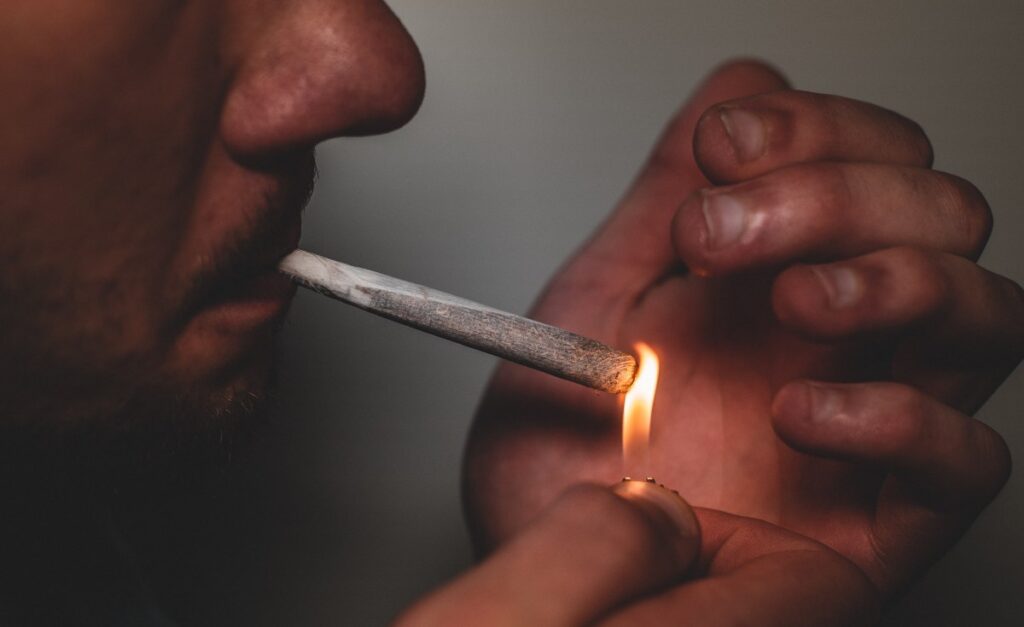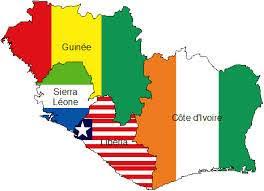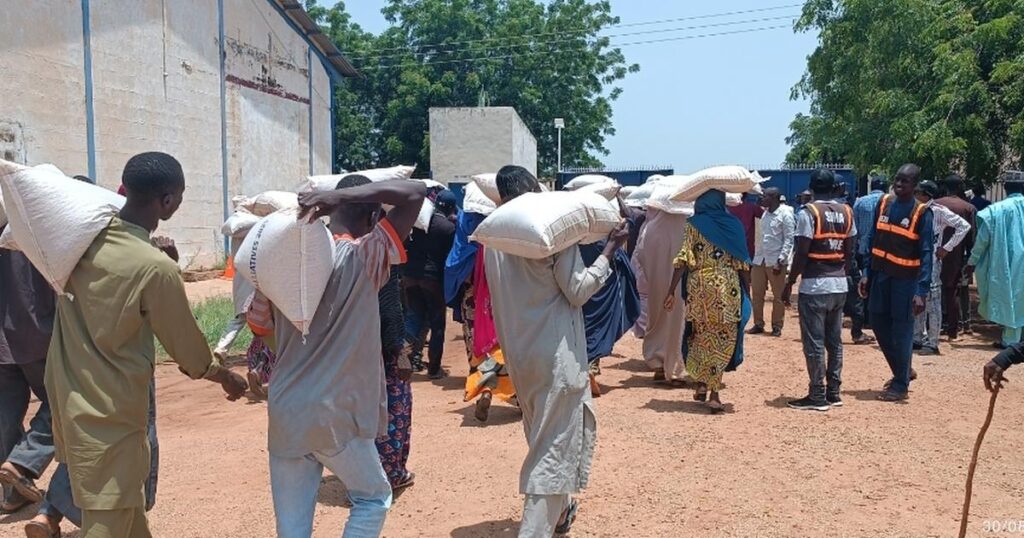Sierra Leone finds itself confronting an adversary, drug abuse, which has permeated communities, schools, and urban centres, leaving a trail of addiction and social disruption in its wake. The country’s young population is falling prey to a potent and highly addictive synthetic drug, which locals refer to as ‘Kush’. As Sierra Leone contends with the complexities of its Kush problem, it confronts not only the immediate health and security concerns but also the deeper socio-economic roots that fuel its spread. This threat is not only depriving the nation of its future leaders but also stalling its socio-economic progress.
Kush first surfaced within Sierra Leone roughly six years ago and has since been causing devastation, particularly amongst the youth. According to Abdul Sheku Kargbo, head of the National Drug Law Enforcement Agency in Sierra Leone, the drug is an amalgamation of various chemicals and plants that simulate the natural cannabinoid THC found in cannabis, hence its heightened potency. However, the exact composition tends to vary. Kush users are widespread across Sierra Leone, with its effects visible from slums to more affluent areas through sightings of users under the influence. Kush’s impact on the youth of Sierra Leone is both visible and devastating. The drug’s users can be spotted sitting slumped, sometimes even sleeping while standing, exhibiting signs of a Kush-induced stupor. As a result of their addiction, young individuals are caught in a vicious cycle of poverty, neglect, and despair through neglect of beneficial endeavours and the growing need to feed the addiction. The drug offers temporary relief from the harsh realities of their lives but at an enormous cost. The physical and mental health implications are severe, with users reporting body and joint aches when not under the influence of the drug. Moreover, it’s not uncommon for users to resort to harmful means, such as sex work or involvement in criminal activities, to fund their addiction. Over the past two years, there have been increasing reports that Kush is taking hold in neighbouring Liberia and Guinea, both of which share porous land borders with Sierra Leone.
Sierra Leone’s healthcare system, already struggling with other challenges such as chronic underfunding and a shortage of qualified workers, cannot cope with the Kush crisis. The country’s lone psychiatric hospital, a refurbished facility from the British colonial era, is overwhelmed with young addicts brought in by desperate families seeking help. According to Jusu Mattia, acting medical superintendent and resident psychiatrist, 60% of the hospital’s admissions are related to Kush. However, their treatment offering is limited to anti-psychotic drugs and isolation treatment lasting between three to six weeks, along with psychotherapy and socialising activities. The lack of workforce and resources for follow-up treatment means that relapses are common, and many Kush addicts have no access to treatment at all.
The rampant use of Kush and other illicit drugs by Sierra Leone’s youth has far-reaching implications for the country’s socio-economic development and well-being. First is the health complications. This abuse has led to a host of health issues, such as addiction, mental health disorders, and physical ailments. These health complications increase healthcare costs for individuals and strain healthcare facilities. On education drug abuse disrupts education and limits the potential of Sierra Leone’s youth. This is through decreased school attendance, dropouts, and poor academic performance, restricting their opportunities for higher education and gainful employment. In crime and criminal justice, drug abuse is often associated with higher risks of engaging in criminal activities, such as theft, violence, and involvement in the drug trade itself. This puts additional pressure on the criminal justice system, including law enforcement resources, courts, and correctional facilities.
Furthermore, the abuse of drugs has a significant effect on social cohesion and community development. It can lead to increased instances of violence, family breakdowns, and strained relationships among community members. These effects can hinder community development initiatives and create divisions within society. It also places a financial burden on families who may need to support their drug-abusing youth.
Recognising the urgency of the situation, Sierra Leone has taken steps to address the challenge of youth drug abuse. Efforts have been made to strengthen drug prevention programmes, expand access to treatment and rehabilitation services, and enhance law enforcement efforts to curb the flow of illicit substances.In response to this escalating crisis, Sierra Leone’s President, Julius Maada Bio, declared drug abuse a ‘national emergency’ in 2024. This move involved establishing a task force responsible for prevention, treatment, law enforcement, social services support, and community engagement. The government also announced plans to dismantle drug trafficking networks, with a particular focus on Kush.
Additionally, community-based initiatives, driven by grassroots organisations and civil society, are crucial in supporting and fostering resilience among vulnerable youth. Despite these efforts, some argue that the government’s response has been too slow and inadequate, given the scale of the problem. Victor Idrissa Lansana, vice chairman of Sierra Leone’s Human Rights Commission, suggested that the government should have declared an emergency sooner. He stressed the need for increased awareness and education for young people about the dangers of Kush and how to avoid it.
Addressing the effects of drug abuse requires a comprehensive approach that encompasses prevention, treatment, rehabilitation, and socio-economic support. This involves raising awareness about the risks of drug abuse, providing accessible and affordable treatment and rehabilitation programmes, promoting educational opportunities, and creating job prospects for youth. Collaboration with international organisations and the implementation of evidence-based strategies can also be effective in combating the drug abuse problem and its impacts on Sierra Leone’s youth. There is also a need for enhanced clampdown on the sources and distribution of the drug through the provision of all necessary sources by the Sierra Leone government.
The fight against drug abuse, particularly the use of kush, is not just Sierra Leone’s battle but a global one, as the epidemic is seen to be spreading to neighbouring countries and could grow exponentially. The crisis affects individuals and the country’s societal fabric and prospects. Therefore, fostering a concerted international response is imperative to help Sierra Leone and other countries grappling with similar challenges. Through a multi-pronged approach encompassing prevention, treatment, rehabilitation, education, and socio-economic support, it is possible to steer the youth away from the path of drug abuse towards a healthier and more promising future.



